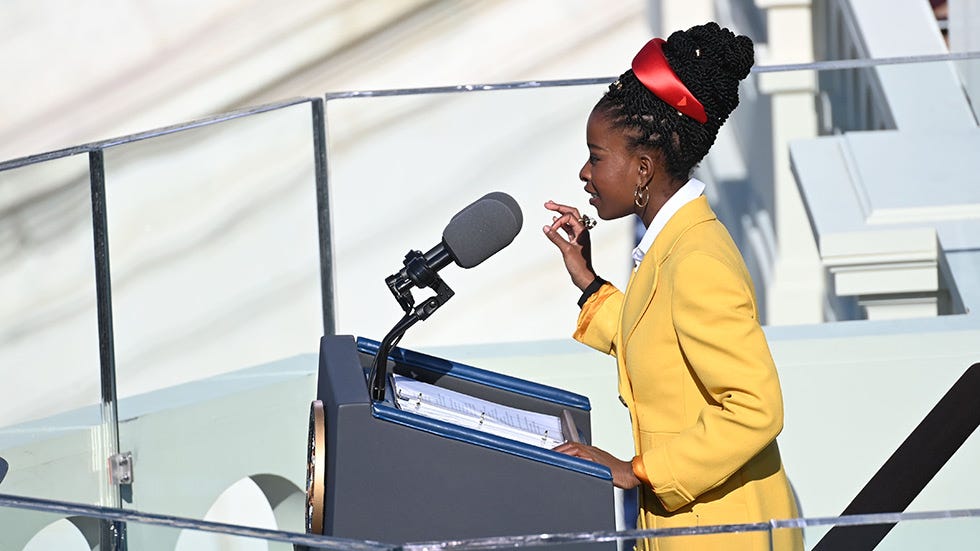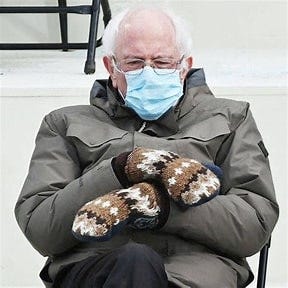Ringing in the New
For Cpl. Larry Lynn Fowler, Panel W16, Line 127
New Day’s Lyric, by Amanda Gorman
May this be the day
We come together.
Mourning, we come to mend,
Withered, we come to weather,
Torn, we come to tend,
Battered, we come to better.
Tethered by this year of yearning,
We are learning
That though we weren't ready for this,
We have been readied by it.
We steadily vow that no matter
How we are weighed down,
We must always pave a way forward.
This hope is our door, our portal.
Even if we never get back to normal,
Someday we can venture beyond it,
To leave the known and take the first steps.
So let us not return to what was normal,
But reach toward what is next.
What was cursed, we will cure.
What was plagued, we will prove pure.
Where we tend to argue, we will try to agree,
Those fortunes we forswore, now the future we foresee,
Where we weren't aware, we're now awake;
Those moments we missed
Are now these moments we make,
The moments we meet,
And our hearts, once altogether beaten,
Now all together beat.
Come, look up with kindness yet,
For even solace can be sourced from sorrow.
We remember, not just for the sake of yesterday,
But to take on tomorrow.
We heed this old spirit,
In a new day's lyric,
In our hearts, we hear it:
For auld lang syne, my dear,
For auld lang syne.
Be bold, sang Time this year,
Be bold, sang Time,
For when you honor yesterday,
Tomorrow ye will find.
Know what we've fought
Need not be forgot nor for none.
It defines us, binds us as one,
Come over, join this day just begun.
For wherever we come together,
We will forever overcome.
I had already written a good measure of this week’s post. My post involved a discussion of eggnog (there was none available at the local grocery store this week), New Year’s Eve parties (I have seldom participated in them over the years, having been raised by parents who hardly ever celebrated the holiday, and having a healthy reluctance to drive on New Year’s Eve), and resolutions (what’s the point?). All of this was headed somewhere — namely to Amanda Gorman. Believe me, I had a plan to turn that corner.
I still do.
But then Jimmy Carter died.
Plenty of pundits have been tripping all over themselves to write about Jimmy Carter in the last few days. Of course they have. For them, it probably hasn’t even been a heavy lift. Most of them have probably had their columns all lined up for weeks if not months. Carter was in hospice care nearly two years before he died. Plus, he was 100 years old. His death was hardly unexpected. Professionals already had those columns written a long time ago. All they had to do was press the SEND key and they were done.
Me? I hadn’t thought much about what to write until now. But I have thought a lot about Jimmy Carter over the years . . . about role models, about core values, about faith.
Did I vote for Jimmy Carter when he first ran for President? Honestly, I don’t remember. I guess I must have, because there was no way I would have voted for Gerald Ford. But, at the time, I seem to recall I did not much like Jimmy Carter either. Even though many people assume I am a died-in-the-wool Democrat, I am not and never have been. I am what used to be called “Independent,” but what is now called (at least here in Maine) “Unenrolled.” Over the years I have sometimes voted for third-party candidates. But in 1976, there wasn’t a third-party candidate on the ballot who appealed to me. So, unless I left the President box on the ballot blank, I voted for Carter the first time.
I am sure I voted for Carter the second time. He was our best chance of keeping Mr. “trickle-down economics” “prayer-in-the-public-schools” “it’s-all-the-‘Welfare-Queens’-fault” Ronald Reagan out of the White House.
People, I have seldom had the pleasure of seeing my favored presidential candidate win. What a waste of time and money it is to conduct polls before elections! All anybody has to do is ask me for whom I am voting. Chances are excellent, but not perfect, the other guy will win.
So far, chances are perfect the other guy will be a guy. 100%.
But I digress. And anyway, this is supposed to be one good thing.
So, back to Jimmy Carter.
I was a young woman when Jimmy Carter became president. At the time, I was very disillusioned about politics in general and presidents in particular. When I was a teenager, Nixon was president. I marched on Washington, protesting the Vietnam War. When I was old enough to vote, I voted for McGovern over Nixon. (See what I mean about the other guy winning?) I followed the rise and fall of Vice President Spiro Agnew and also the Watergate hearings and Nixon’s resignation from office with disgust but no great surprise. By then, I assumed corruption would be the order of the day.
Also, I was grieving on a personal level, but with no good way to understand or express that grief. You see, when I was in high school, I corresponded with a soldier in Vietnam. I had never met him. We were pen pals. He seemed to look forward to my letters, but then he abruptly stopped writing. I had no way of finding out why, but, fearing the worst, I gathered a cloud of grief inside me. About 10 years ago, I visited the Vietnam Memorial in Washington DC. Sure enough, my pen pal’s name was carved there along with the thousands of other war dead. At last, I could expel that cloud of grief.
All of that Vietnam War history predated Jimmy Carter’s presidency, of course. By the time he came along, my disillusionment was pretty entrenched. So, was I impressed by his presidency? Well, a few things come to mind: his care for the environment, exemplified by installing solar panels on the White House; his commitment to peace, exemplified by the Camp David Accords. Of course I remember the Iran hostage crisis. But I don’t much remember Jimmy Carter’s presidency impressing me one way or another.
Oh, but I was unprepared for what a fine former president he was.
Jimmy Carter seemed to recognize that his position as a former president gave him clout. More than any other former president in my lifetime — and maybe even in the history of our nation — Jimmy Carter used his time and social currency to work to improve the lives of others. As such, Jimmy Carter was one good thing. He said:
“When I was in the White House, I thought of human rights primarily in terms of political rights, such as rights to free speech and freedom from torture or unjust imprisonment. As I traveled around the world since I was president, I learned there was no way to separate the crucial rights to live in peace, to have adequate food and health care, and to have a voice in choosing one’s political leaders. These human needs and rights are inextricably linked.”
He lived his own, personal life on a pretty humble scale. The contrast could not be starker between him and other former (and even incoming) presidents. Many former presidents have seemed bent on enriching themselves through book deals, pricey speaking engagements, or crass material offerings. Most have lived in lavish accommodations. Some have largely withdrawn from public life. That’s their prerogative, of course, but Jimmy Carter saw in his position an implied obligation to use his power to effect positive change in the wider world. That’s the difference. That’s the one good thing.
Was Jimmy Carter perfect? Assuredly not. Not a perfect president. Not a perfect former president. Not a perfect human being. Nobody is. But he was a man of humility, who answered to an ethic and morality he viewed a far larger than himself. For him, it was his Christian faith. He said:
“My faith demands — this is not optional — my faith demands that I do whatever I can, wherever I am, whenever I can, for as long as I can, with whatever I have to try to make a difference."
And guess what? You don’t have to be a former president to use whatever tools you have available to effect positive change in the world. You don’t have to be a Christian or even a person of any particular faith to reach the same moral and ethical stances that Carter reached. You just need to be willing — as Carter was — to take up the work, to do the self-exploration, to look beyond yourself and to the wider world that so needs our love and care.
Some say we stand on the shoulders of giants. If that is so, then, for me, Jimmy Carter is one such giant. He was a giant of ethic, of principle, of deed, of morality. He was the kind of giant we need our children to emulate. The kind of giant we need to emulate ourselves.
Is there a direct line from Jimmy Carter to Amanda Gorman? Probably not. But there is a connection. Jimmy Carter was a man who publicly stood up for, spoke for, and worked for what is right, who advocated for equal rights his entire life, who used his work to embody his faith, and who used his voice to speak his truth. Because of that, he paved the way for others. He helped to open hearts and ears so that new voices could be heard.
Amanda Gorman, a poet and an activist with similar values to Jimmy Carter’s, was only 20 years old when she spoke at Joe Biden’s inauguration in 2021. 20 years old! She was a senior at Harvard University. She hadn’t even been graduated yet! Talk about new voices!
But you remember. Washington DC was practically an armed fortress at the time, because of Covid restrictions and the aftermath of an attempted coup instigated by outgoing President Donald Trump, who had lost the election to incoming President Biden. People were wearing masks. The military presence was visible and palpable. It was freezing. Bernie Sanders was wearing his infamous mittens. And the nation was on edge.
And then 20-year-old Amanda Gorman stood up in her bright yellow coat and spoke her truth. In front of millions of people gathered around their television sets she spoke:
Somehow we’ve weathered and witnessed
a nation that isn’t broken
but simply unfinished
We the successors of a country and a time
Where a skinny Black girl
descended from slaves and raised by a single mother
can dream of becoming president
only to find herself reciting for one
She said:
We will rebuild, reconcile and recover
and every known nook of our nation and
every corner called our country,
our people diverse and beautiful will emerge,
battered and beautiful
When day comes we step out of the shade,
aflame and unafraid
The new dawn blooms as we free it
For there is always light,
if only we’re brave enough to see it
If only we’re brave enough to be it
Remember?
I remember. I will never forget it.
“We must always pave a way forward,” says Amanda Gorman. Now our little parade slides into January — winter holidays behind us, weeks of snow and cold and who knows what else ahead of us — and somehow increasing the year’s number by one does something internally. The turning of the year often lifts into view the aspirations people harbor, the dreams they might bring to fruition, the possibility for positive change. And so, may we turn to Amanda Gorman’s words. May we resolve to mend what we mourn, weather what has withered, tend what is torn, better what is battered, learn from our yearning, and pave the way forward.
Godspeed to Jimmy Carter, who was a light for so many. I read somewhere that Amanda Gorman hopes to run for president in 2036. I am not going to say I will vote for her, because, as I established above, that would be the kiss of death.
But I hope you will.
Happy New Year.
Love,
Sylvia






I love this post, Sylvia. Thank you for writing it. It encompasses so many of my feelings as well. Looking hopefully and with apprehension at our future and trying to live Carter’s mantra in my own life, which isn’t easy,
I’m holding you in new year light. These past weeks were such challenging times; I was aching from the emotional tornado inside me.
I could even feel it while reading your One Good Thing.
Wonder if you might be interested in the service Jud and I put together (through technology) in February 2021, during the pandemic. We honored the Presidential Inaugural Poets ( Frost, Angelou, and Gorman) and had a video of Amanda Gorman’s presentation of this poem. Really worth seeing live.
She’s an inspiration, and her poem is layers of respect for the democracy that Carter embodied. Thanks for your tribute to him and what he accomplished: millions of good things.🤩
Hugs